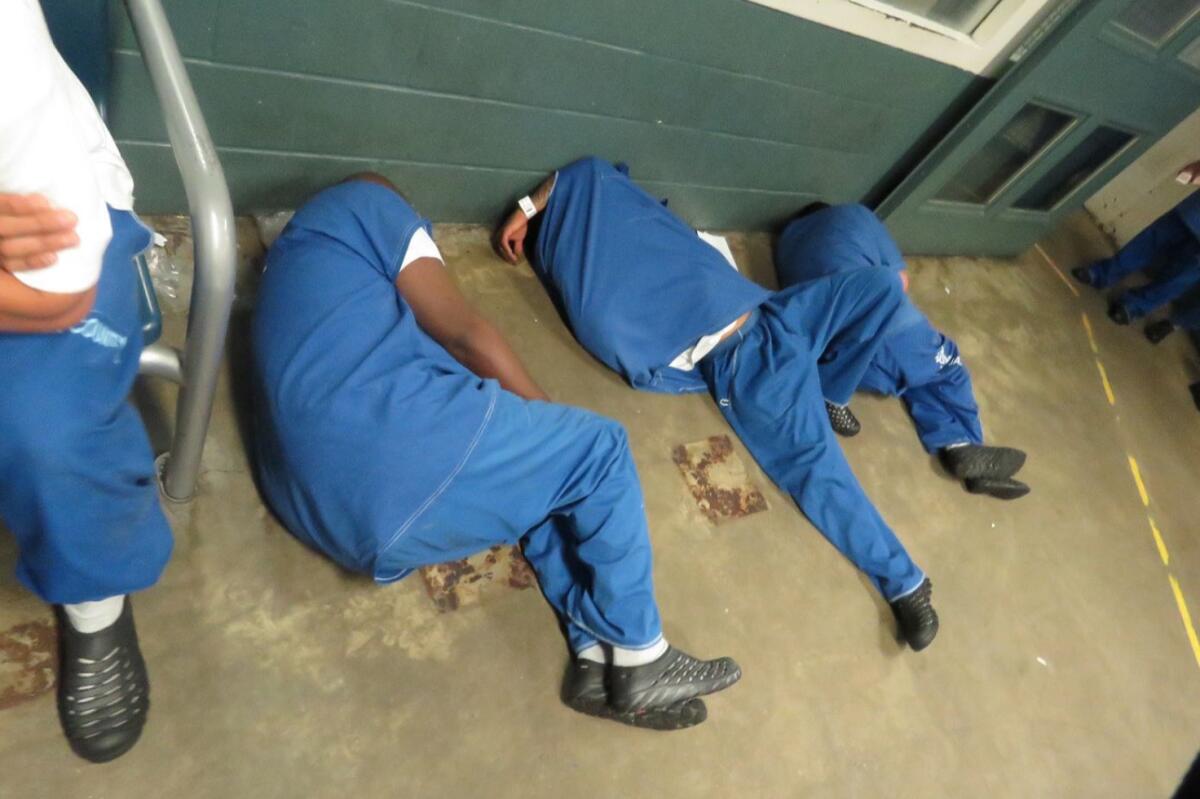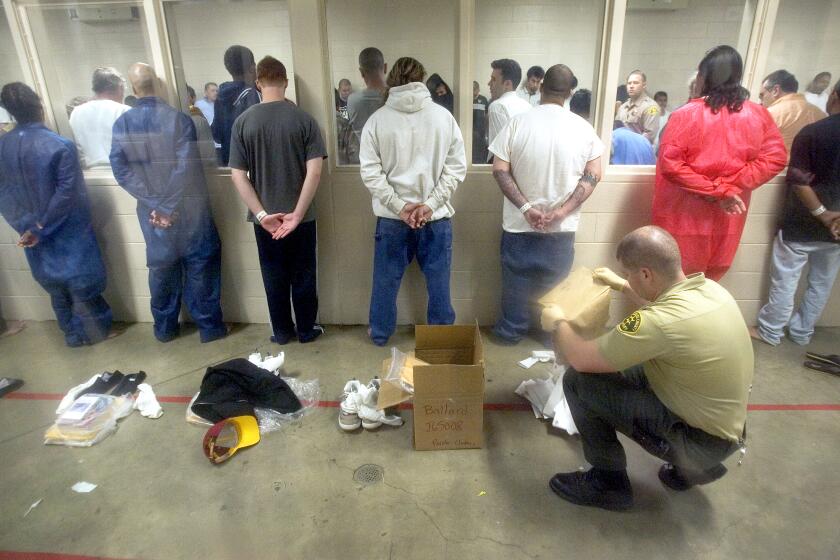County avoids contempt hearing over jail conditions: federal judge approves settlement

Days before a federal court was set to consider whether to hold Los Angeles County in contempt for failing to fix problems inside the Inmate Reception Center, U.S. District Judge Dean D. Pregerson has approved a settlement agreement under which local leaders are promising to make broad changes to improve jail conditions.
In addition to permanently setting limits on how long detainees can be held in the reception center and how long they can be handcuffed to benches, the settlement also includes provisions designed to help lower the jail population by diverting hundreds of people into mental health treatment. The hope is that, with fewer people in jail, conditions there will improve.
“This is a watershed moment for the ACLU’s jail and prison decarceration movement,” Corene Kendrick, deputy director of the ACLU National Prison Project, said in a news release. “This is the first time in the country a jurisdiction that we or other advocates have sued agreed that the cornerstone to addressing abysmal jail conditions and overcrowding is to reduce the number of people coming to jail in the first place.”
In an emailed statement Thursday afternoon, the Los Angeles County Sheriff’s Department also lauded the agreement.
“We recognize that we have more work to do but will not stop in our efforts to improve,” the statement said. “The settlement is an important step in addressing issues that have long plagued county correctional facilities, but for which we are committed to addressing.”
The county echoed that sentiment in an emailed statement, praising the “hard work of multiple departments” to “swiftly and efficiently” put in place the broad changes that made the settlement possible.
“This work continues to be a top priority,” the county added.
The agreement is the latest development in a lawsuit first filed in the 1970s targeting persistently poor conditions in the Los Angeles jails. Since that time, the county has never been able to fully comply with court orders to fix the problems behind bars.
In September, after years of legal wrangling, the ACLU filed a motion raising concerns about deteriorating conditions at the Inmate Reception Center. New detainees in the downtown L.A. facility — most of whom had not yet been convicted of a crime — were reportedly forced to defecate on the floor and in food containers, were handcuffed to benches for days at a time and were routinely denied needed medications for mental illnesses.
Lawyers for the county admitted Wednesday that officials never fully complied with a court order to clean up Los Angeles jails – but a federal judge gave them two more months before deciding whether to find county officials in contempt of court.
In response, Pregerson signed a preliminary injunction ordering certain changes to address those problems. Specifically, the county was banned from keeping anyone in the reception center for more than 24 hours or chaining people to benches for more than four hours. The injunction also forbade keeping people in holding cells or cages for more than 12 hours at a time and required everyone to be held in sanitary conditions.
But in February, the ACLU filed a 27-page motion alleging that the county had flouted the court’s order by tethering inmates to benches and gurneys for hours at a time, locking people in cells covered with trash and feces and leaving them to sleep on crowded intake center floors with nothing but plastic bags to keep warm.
“We are treated like animals,” one inmate wrote in a court filing at the time. “People shouldn’t live like this.”
The civil rights organization asked Pregerson to sanction the county and levy fines for any future violations of court orders. The judge was expected to decide whether he would do that following a contempt hearing scheduled for next week.
Then, late last week, the county and the ACLU announced that they’d come to an agreement. On Thursday, Pregerson finalized it with a signature, negating the need for a hearing and bringing an end to the ACLU’s request to hold the county in contempt.
Though both parties lauded it as a step forward, the settlement order does not end the overall lawsuit. Instead, it makes permanent some of the time limits and required conditions outlined in the preliminary injunction ordered last year.
Under the new agreement, the county also agreed to continue a number of other corrective steps that had begun in recent months, such as creating a “robust” cleaning schedule, hiring new janitorial crews, improving mental health staffing levels and creating a new tracking system to make sure no one stays in cages or chained to benches for longer than allowed.
But the piece of the order most celebrated by inmate advocates was the creation of new alternatives to incarceration, including more than 500 noncarceral beds for people found incompetent to stand trial and nearly 1,700 for other people with mental illness.
In a statement Thursday, Michelle Parris, director of the Vera Institute of Justice’s California office, explained the importance of that move.
“A key piece of this agreement is building out more than 2,000 beds to divert currently incarcerated people into community-based mental health treatment, something community members have demanded for years,” she said. “While it should not have required litigation to see movement, this settlement is an opportunity for the county to finally build the robust, decentralized system of care Los Angeles needs.”
As officials work toward bringing those beds online, the county will have to provide quarterly reports to the court detailing progress toward compliance with Thursday’s order.
More to Read
Sign up for Essential California
The most important California stories and recommendations in your inbox every morning.
You may occasionally receive promotional content from the Los Angeles Times.












